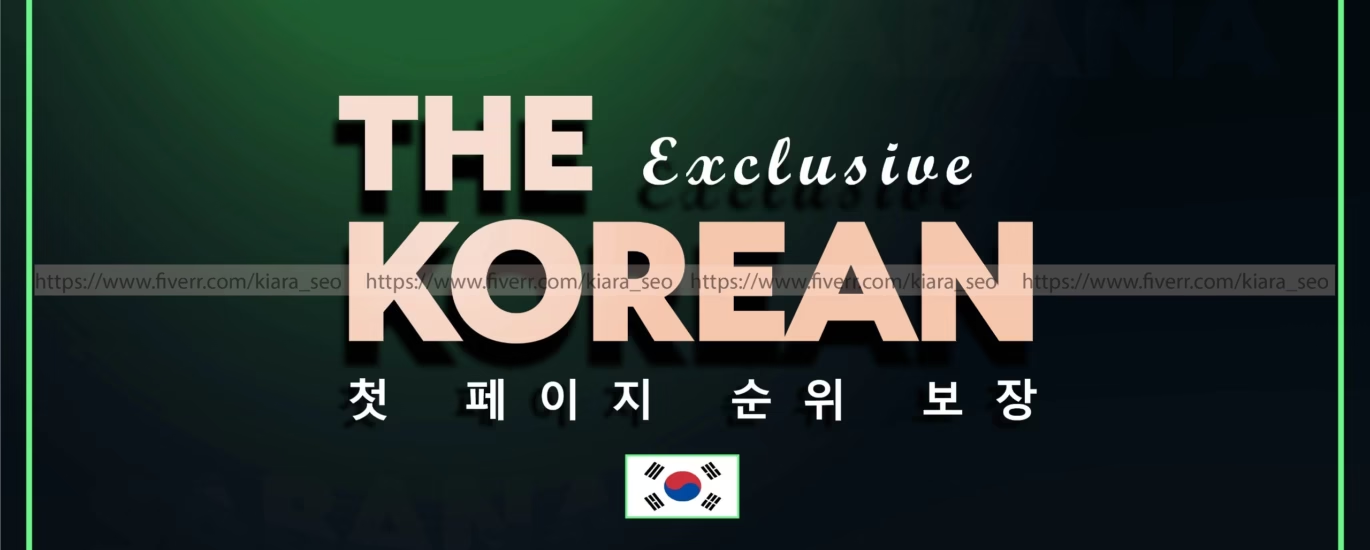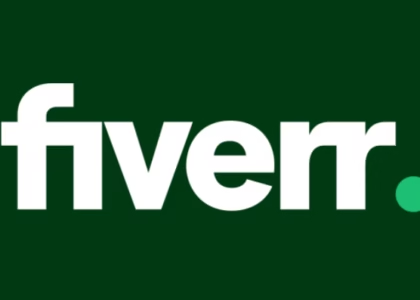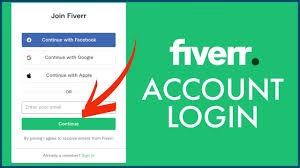Korean Backlinks Ever tried ranking a website in South Korea and wondered why your usual SEO tricks aren’t working? Welcome to the world of Korean backlinks—where culture, language, and local search engines flip everything you know about SEO upside down.
So what’s the big deal with Korean backlinks? If you’re trying to break into the South Korean market, these region-specific links are your golden ticket to visibility, credibility, and trust among Korean users. Think of them like a vote of confidence—from the right people, in the right place.
Let’s dive deep into why Korean backlinks are more than just “links” and how they can skyrocket your SEO strategy.
Understanding the Korean Digital Landscape
Internet Usage in South Korea
South Korea has one of the fastest and most internet-savvy populations on the planet. Over 96% of the population has internet access, and mobile usage dominates.
The Dominance of Naver Over Google
Unlike most countries where Google rules, Naver is Korea’s search engine king. It’s not just a search engine—it’s a social platform, news aggregator, blog hub, and encyclopedia all in one. That means SEO here looks completely different.
Local Content Preferences
Koreans love locally written content. They trust platforms like Naver Blog, Daum Café, and KakaoStory. If your content isn’t locally relevant or in perfect Korean, it simply won’t perform well—even if your backlinks are top-tier.
What Are Korean Backlinks?
Korean backlinks are links coming from Korean websites, typically with .kr domains or content in Korean, pointing to your website. These links are especially effective when you’re targeting:
- Korean consumers
- Korean-language content
- Local SEO visibility on Korean platforms
How They Differ From Western Backlinks
- Language: Fully Korean content and anchors.
- Platforms: Naver, Daum, Kakao, etc. instead of WordPress or Blogger.
- Trust: Korean users trust local sources over foreign ones.
Why Korean Backlinks Matter in SEO

Backlinks are one of the top three ranking factors in Google, and it’s no different in Korea—especially on platforms like Naver.
Boosting Domain Authority
High-quality Korean backlinks signal relevance and trust to local search engines. This boosts your domain authority for local rankings.
Relevance and Location-Based Ranking
Search engines prioritize localized relevance. If you’re targeting Korean users, a backlink from a Korean blog is worth 10x more than one from an American site—even if the American site has higher domain authority.
Naver vs. Google: A Backlink Strategy Shift
Naver SEO Is a Different Beast
Naver doesn’t crawl the web like Google. It prefers content published on its own ecosystem—Naver Blog, Naver Café, and Naver Post.
Naver’s Emphasis on Content & Backlinks
Backlinks still matter, but the quality of user engagement and local relevance is key. Think blog comments, likes, shares, and discussion threads.
Types of Korean Backlinks
Editorial Backlinks
These are links naturally placed in articles on Korean news or blog platforms.
Blog Backlinks
Mostly from Naver Blog. These are gold for SEO in Korea due to Naver’s preference for its own content.
Forum and Community Links
Daum Café and Naver Café are like Reddit—only much more active and locally trusted.
News Website Backlinks
Appearing on top Korean news outlets (like Yonhap News or Korea Herald) can give you unmatched authority.
Social Signals as Backlinks
KakaoTalk shares, Naver Blog likes, or even content on KakaoStory act as indirect ranking signals.
White Hat vs. Black Hat Korean Backlinks
Ethical Approaches Win the Long Game
Google and Naver penalize spammy link-building. Buying links in bulk? That might backfire big time.
Common Black Hat Tactics
- Spamming Korean forums
- Using AI-generated Korean content
- Mass comment-linking
White Hat Strategies
- Real blogger outreach
- Guest posting
- Influencer collaborations
How to Get High-Quality Korean Backlinks
Collaborate with Korean Bloggers
Naver Blog influencers offer review posts, content collaborations, and backlink opportunities.
Press Releases
Submitting a press release in Korean to a local news agency can earn you backlinks and brand visibility.
Guest Posts
Pitch relevant content in Korean to local niche blogs or online magazines.
Engage on Q&A Platforms
Naver Knowledge-iN, similar to Quora, lets you drop backlinks in thoughtful, helpful answers.
Tools to Analyze Korean Backlinks
Naver Webmaster Tools
Helps monitor your presence on Naver, similar to Google Search Console.
Ahrefs & SEMrush
Set language to Korean and explore .kr referring domains.
Google Search Console (Korean Version)
Track Korean search queries and backlinks for your site.
Mistakes to Avoid in Korean Backlink Building
- Avoid Machine-Translation: Poor Korean screams spam.
- Don’t Ignore Cultural Tone: Casual, friendly, and humble tone wins hearts.
- Never Spam Communities: Koreans are quick to flag suspicious activity.
Real-Life Case Study
A Korean skincare brand looking to expand internationally built backlinks through:
- Naver Blog partnerships
- Press coverage on Korean beauty portals
- Forums like Daum Café and K-Beauty Reddit threads
Results?
+400% increase in organic traffic and first-page rankings for over 30 Korean keywords.
Costs of Korean Backlinks
- Blogger Post: $100–$500
- News Feature: $300–$1000
- Naver Café Post: $50–$200
- Agency Package: $1000–$5000/month
Prices vary based on domain authority, niche, and language service.
Korean Backlinks for E-commerce & Local Businesses
Want to sell to Korean consumers? Korean backlinks can:
- Improve local map pack rankings
- Help Shopify or WooCommerce stores rank on Naver
- Boost local business reviews visibility
Korean Backlinks and Mobile SEO
Most Korean users access content via mobile. Make sure:
- Backlinks point to mobile-optimized content
- You’re featured in mobile-friendly platforms like Kakao or Naver mobile search
The Future of Korean Backlinks
AI is changing SEO worldwide, but local relevance still reigns in Korea.
Emerging platforms like Brunch, Blind, and ZUM could be the next backlink frontier.







Лучшие ИБП для бизнеса, в обзоре.
Рейтинг лучших ИБП, с подробностями.
Почему стоит купить ИБП, здесь.
Топ-5 ИБП для защиты техники, ознакомьтесь.
Все о ИБП, в статье.
Советы по покупке источников бесперебойного питания, в этой статье.
Источники бесперебойного питания: как выбрать лучший, читайте.
Как работает источник бесперебойного питания, в этой статье.
Советы по использованию ИБП, в нашем блоге.
Тенденции рынка источников бесперебойного питания, в нашем обзоре.
Правила подключения источника бесперебойного питания, узнайте.
Как выбрать ИБП для разных нужд, ознакомьтесь.
Инсайдерские советы по выбору источников бесперебойного питания, в статье.
Сравнение ИБП: какой выбрать?, в нашем обзоре.
Пошаговая инструкция по установке ИБП, на сайте.
Что выбрать: ИБП или альтернативу?, ознакомьтесь.
Как продлить срок службы ИБП, в нашем гиде.
Как выбрать ИБП для игры, узнайте.
Топ-10 источников бесперебойного питания на рынке, читайте.
заказать ИБП [url=https://www.istochniki-bespereboynogo-pitaniya.ru#заказать-ИБП]https://www.istochniki-bespereboynogo-pitaniya.ru[/url] .
Хотите собрать информацию о пользователе? Наш сервис поможет полный профиль в режиме реального времени .
Используйте продвинутые инструменты для анализа публичных записей в открытых источниках.
Выясните место работы или интересы через автоматизированный скан с верификацией результатов.
глаз бога телеграм канал
Система функционирует в рамках закона , обрабатывая открытые данные .
Закажите расширенный отчет с историей аккаунтов и списком связей.
Доверьтесь проверенному решению для digital-расследований — результаты вас удивят !
Хризантемные букеты с доставкой по Москве без дополнительных затрат — это отличное решение для всех, кто хочет порадовать близких. Хризантемы известны своей красотой и разнообразием. С их помощью можно создать изысканные композиции.
[url=https://hrizantemymsk.ru/]Букеты из хризантем с бесплатной доставкой по Москве[/url]
В нашем ассортименте представлено множество стилей цветочных решений. Каждый букет оформляется с особой тщательностью. Мы ценим уникальность вашего подарка, и наши букеты это подчеркивают.
Делая предзаказ, вы можете указать удобное время для доставки. Ваш букет достигнет адресата ровно в назначенное время. Каждый заказ доставляется нашими курьерами с максимальным вниманием и заботой.
Выбирая хризантемные букеты, вы дарите себе и близким радость и красоту. Пусть ваши близкие почувствуют заботу и внимание через цветы. Свяжитесь с нами, и мы с удовольствием поможем вам выбрать лучший букет.
Discover the secrets of effective marketing: precise contact information! I can help you gather it all. https://telegra.ph/Personalized-Contact-Data-Extraction-from-Google-Maps-10-03 (or telegram: @chamerion)
It’s amazing in support of me to have a web site, which is valuable for my knowledge.
thanks admin